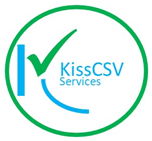
Keeping your projects simple, straightforward & compliant...
Service - Blockchain & AI
Blockchain Technology
Blockchain is a technology that allows data to be stored and exchanged on a peer-to-peer network, without the need for a central authority or intermediary.
Blockchain can provide benefits for the pharmaceutical industry, such as:
· Improving transparency and traceability of products and processes, which can help prevent counterfeiting, fraud, theft, and contamination.
· Enhancing data quality and integrity, which can help ensure the safety and efficacy of drugs and vaccines.
· Reducing costs and inefficiencies, which can help optimize inventory management, supply chain operations, and regulatory compliance.
· Increasing innovation and collaboration, which can help accelerate drug development, clinical trials, and research.
Pharmaceutical industry use cases:
· Storing patient health data safely: Blockchain can enable secure and decentralized storage of patient health data on a distributed ledger that is accessible only by authorized parties. This can protect the privacy and confidentiality of patients while also facilitating data sharing among healthcare providers, researchers, regulators, and insurers1.
· Accelerating clinical trials: Blockchain can enable faster and more efficient recruitment, enrolment, monitoring, and reporting of clinical trials. This can reduce the risk of errors, fraud, or bias in trial data while also improving patient engagement and satisfaction1.
· Lowering drug development costs: Blockchain can enable more transparent and collaborative drug development processes among different stakeholders. This can reduce the need for intermediaries such as patent holders or contract manufacturers while also increasing trust and accountability among partners2.
Medical Device industry use cases:
· Traceability and Transparency: Blockchain can be used to keep permanent records of the development, design, production, and distribution of medical devices as well as all of the parts from suppliers. This results in permanent traceability for every device, which can help prevent counterfeiting and ensure compliance with regulatory standards.
· Data Security: Most medical devices today collect, store, and transmit patient-specific data. Blockchain can enhance the security of this data by allowing it to be stored and exchanged on a peer-to-peer network, without the need for a centralized authority. This can protect the privacy and confidentiality of patients while also facilitating data sharing among healthcare providers.
· Supply Chain Management: Blockchain can improve the transparency and efficiency of the supply chain for medical devices. It can help track the movement of devices from manufacturing to delivery, ensuring that the devices are not tampered with or replaced with counterfeit products.
· Clinical Trials: Blockchain can also be used to manage and monitor clinical trials. It can ensure that the data collected is secure, transparent, and cannot be tampered with, which can increase the reliability of the trial results.
· Regulatory Compliance: Blockchain can help medical device companies comply with regulatory requirements. It can provide a secure and immutable record of all activities, which can be audited by regulatory authorities to ensure compliance.
R&D use cases:
· Data Sharing and Collaboration: Blockchain’s ability to securely transfer data within a wide network helps boost drug research and development. It enables drug researchers working from various locations to share data and collaborate easily for faster drug development.
· Clinical Trials: Blockchain can bring clinical trials into the new age. It enables the creation of immutable records that can be relied upon by multiple parties2. This is particularly important when it comes to regulatory processes or when cause-effect analyses are performed to resolve issues.
· Data Integrity and Security: Blockchain-based systems use a distributed ledger driven computer network to store time-stamped data entries, known as transaction records2. As a result of the data being spread across a large network of databases in replicate copies, the information is much less vulnerable to hack, infringe or steal.
· Ledger of Truth: The primary use for blockchain within the pharma industry is to serve as a “ledger of truth” for sharing complex information with regulators, pharmacy benefit managers, contract manufacturers, physicians, patients, academic researchers, and R&D collaborators.
AI & the Pharmaceutical industry
Artificial Intelligence (AI) is increasingly being used in the pharmaceutical industry to streamline and enhance various processes. Here are some key applications:
· Drug Discovery: AI can help identify and validate genetic targets for drug development, design novel compounds, and expedite drug development1. It can analyse vast amounts of data to predict how different compounds will behave and how likely they are to make an effective drug.
· Clinical Trials: AI can improve the efficiency of clinical trials by helping with patient recruitment, monitoring patient health in real-time, and analysing results.
· Manufacturing: AI can make supply chains smarter and more responsive, which can lead to cost savings and increased efficiency.
· Personalized Medicine: AI algorithms can analyse individual patient data to predict their response to various treatments, enabling more personalized and effective treatment plans.
· Data Security: AI can enhance data security in the pharmaceutical industry by detecting anomalies and potential threats in real-time.
· Market Research: AI can analyse market trends, customer behaviour, and sales data to provide valuable insights for marketing and sales strategies.
"Interested in how this tech can help your business?".





